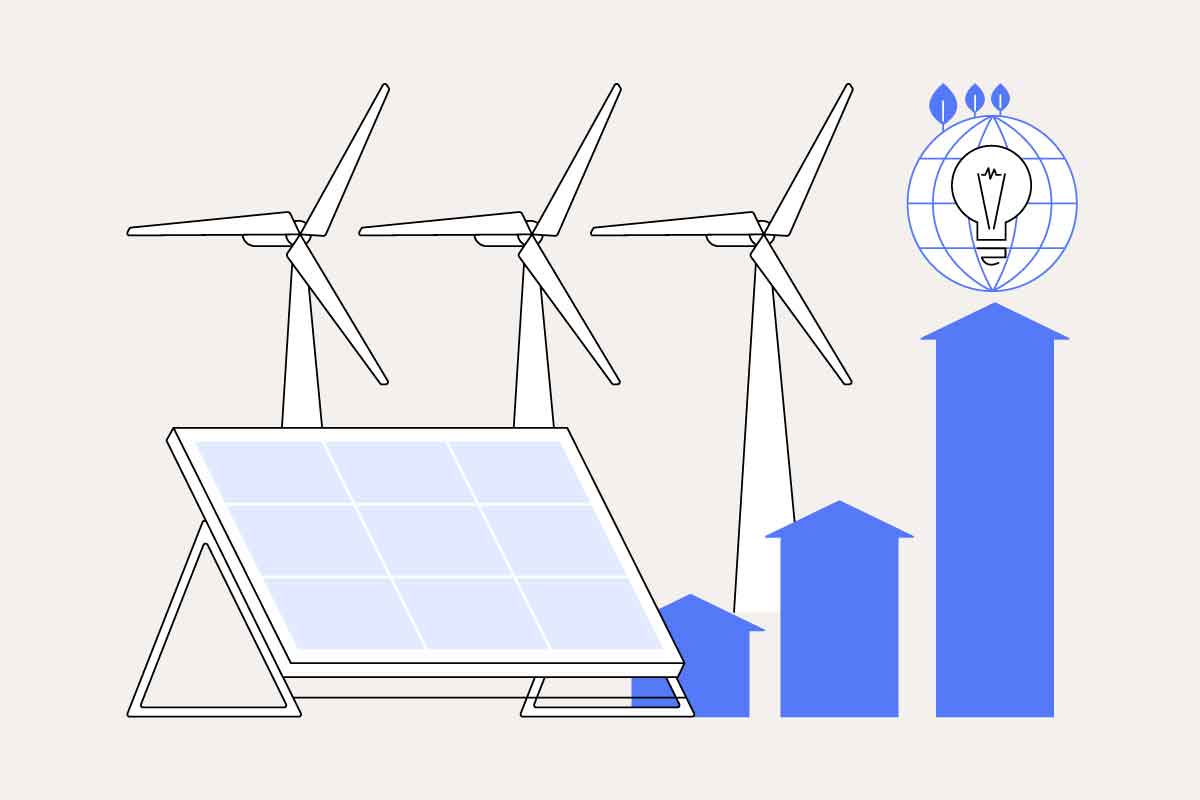One of the major players in the business energy sector, Engie, offers a range of energy products tailored to meet the needs of various business sizes and sectors. This costs guide provides an overview of Engie pricing strategies and the products available to help UK businesses make informed decisions about their energy needs.
Engie business energy pricing list – Gas and electricity tariffs
To provide a clear picture of Engie business energy pricing, here is an indicative data table showcasing typical price ranges for different types of contracts. Please note that these prices can vary based on market conditions, contract length, business size, and other factors.
| Plan Type | Contract Length | Typical Price Range (pence per kWh) | Additional Fees |
| Fixed Price Plan | 1 Year | 15.0 – 17.5 | Standing charge applies |
| 2 Years | 14.5 – 17.0 | Standing charge applies | |
| 3 Years | 14.0 – 16.5 | Standing charge applies | |
| Flexible Price Plan | 1 Year | 13.0 – 18.0 (variable) | Standing charge and admin fees |
| 2 Years | 12.5 – 17.5 (variable) | Standing charge and admin fees | |
| 3 Years | 12.0 – 17.0 (variable) | Standing charge and admin fees | |
| Green Energy Tariff | 1 Year | 16.0 – 18.5 | Standing charge applies |
| 2 Years | 15.5 – 18.0 | Standing charge applies | |
| 3 Years | 15.0 – 17.5 | Standing charge applies |
Understanding Engie business energy offerings
Engie is a global energy and services group, with a strong presence in the UK market. They offer a comprehensive portfolio of energy products designed to cater to different types of businesses, from small and medium enterprises (SMEs) to large corporations. Engie product offerings are built around three core pillars: flexibility, sustainability, and cost-efficiency.
- Fixed price plans: These plans allow businesses to lock in their energy rates for a set period, typically ranging from one to three years. This type of contract offers predictability in energy costs, protecting businesses from market volatility. Engie’s fixed price plans are ideal for businesses that prefer stable budgeting and wish to avoid unexpected price hikes.
- Flexible price plans: For businesses that can manage some level of risk, Engie offers flexible price plans. These plans allow businesses to take advantage of market price movements, potentially leading to lower energy costs when market prices are favourable. Engie’s flexible pricing options include fully flexible, part-fixed/part-flexible, and collaborative purchasing agreements, giving businesses a range of choices to align with their risk appetite and energy management strategy.
- Green energy tariffs: As sustainability becomes a key consideration for businesses, Engie has developed green energy tariffs that provide energy sourced from renewable resources. These tariffs are suitable for businesses looking to reduce their carbon footprint and meet corporate social responsibility (CSR) goals. Engie’s green tariffs are fully backed by Renewable Energy Guarantees of Origin (REGO) certificates, ensuring that the energy supplied is genuinely renewable.
Factors influencing Engie pricing
Engie pricing for business energy products is influenced by several factors, including market conditions, regulatory changes, and the specific needs of individual businesses. Here are some key considerations that impact Engie’s energy prices:
- Market dynamics: The wholesale energy market plays a significant role in determining the prices Engie can offer. Fluctuations in global energy prices, influenced by geopolitical events, supply and demand dynamics, and natural disasters, can all impact the cost of energy.
- Government policies and regulations: Changes in government policies, such as carbon pricing, renewable energy incentives, and energy efficiency mandates, can affect Engie’s pricing structure. Compliance with these regulations can lead to additional costs, which may be passed on to customers.
- Consumption patterns: Engie tailors its pricing based on the consumption profile of the business. Factors such as peak demand periods, overall usage levels, and the type of industry can influence the rates offered. Businesses with higher energy consumption may benefit from economies of scale, resulting in more competitive pricing.
- Contract length and terms: Longer-term contracts often provide businesses with more attractive pricing options, as they offer stability and predictability for both the supplier and the customer. Engie provides various contract lengths, allowing businesses to choose a term that best suits their financial planning and energy needs.
Making the right choice with Engie
Choosing the right energy product and pricing plan is crucial for businesses to manage costs effectively and achieve sustainability goals. Here are some tips for businesses considering Engie as their energy supplier:
- Assess energy needs and usage patterns: Understanding your business’s energy consumption patterns is the first step in selecting the right plan. Engie offers tools and resources to help businesses analyse their energy usage, which can be valuable in determining the most cost-effective and suitable plan.
- Evaluate risk tolerance: Businesses should consider their tolerance for price volatility when choosing between fixed and flexible pricing options. While fixed plans offer stability, flexible plans can provide cost savings when market conditions are favourable.
- Consider sustainability goals: For businesses with a strong focus on sustainability, Engie’s green energy tariffs offer a way to meet renewable energy targets. By opting for green tariffs, businesses can enhance their environmental credentials and appeal to eco-conscious customers and stakeholders.
- Engage with Engie’s energy experts: Engie provides dedicated account managers and energy experts who can offer tailored advice and support. Engaging with these professionals can help businesses navigate the complexities of energy contracts and make informed decisions.
For more, see our business energy comparison, and our price lists for business gas and business electricity.
FAQ – Engie business prices
Engie fixed price plans usually range from 14.0 to 17.5 pence per kWh. The exact rate depends on the length of the contract: a 1-year contract typically costs 15.0 to 17.5 pence per kWh, while a 3-year contract ranges from 14.0 to 16.5 pence per kWh.
Engie’s flexible price plans are based on market conditions and can vary between 12.0 and 18.0 pence per kWh. These rates reflect the variability in the energy market, with a typical 1-year flexible plan costing between 13.0 and 18.0 pence per kWh and a 3-year plan ranging from 12.0 to 17.0 pence per kWh.
Engie typically includes a standing charge for most of its plans, which is a fixed daily fee ranging from 20 to 25 pence per day. For flexible price plans, there may also be administrative fees, which can add an extra 0.5 to 1.0 pence per kWh to cover the costs of market monitoring and management.
Engie’s green energy tariffs are slightly higher than standard plans, reflecting the use of renewable energy sources. Prices range from 15.0 to 18.5 pence per kWh, with a typical 1-year green energy contract costing between 16.0 and 18.5 pence per kWh.
Yes, Engie offers more competitive rates for longer-term contracts. For example, a 1-year fixed price plan might cost around 15.0 to 17.5 pence per kWh, while a 3-year contract could lower the rate to 14.0 to 16.5 pence per kWh, offering savings over the long term.
Engie reviews its business energy prices regularly, typically on a quarterly basis, to reflect changes in the wholesale energy market and other influencing factors. Flexible price plans may see adjustments more frequently, depending on market conditions, with prices ranging from 12.0 to 18.0 pence per kWh over time.
Engie offers customised pricing for high-energy-consuming businesses, which can lead to lower per kWh costs due to economies of scale. Large consumption contracts might see rates as low as 12.0 to 15.0 pence per kWh, depending on the business’s specific usage patterns and contract terms.
The average standing charge in Engie’s business energy plans is around 20 to 25 pence per day. This charge covers the cost of maintaining the energy supply infrastructure and is a common feature in most energy contracts.
Yes, Engie can provide a detailed cost breakdown for businesses considering a switch. This typically includes comparisons of unit rates (e.g., 14.0 to 17.5 pence per kWh for fixed plans), standing charges (e.g., 20 to 25 pence per day), and any additional fees applicable to the flexible or green energy tariffs.
Engie aims to offer competitive pricing within the UK business energy market. Fixed price plans are commonly priced between 14.0 and 17.5 pence per kWh, and green tariffs range from 15.0 to 18.5 pence per kWh, which are in line with market averages. Engie’s flexible options provide the potential for lower costs, reflecting Engie’s commitment to offering value-driven solutions.

